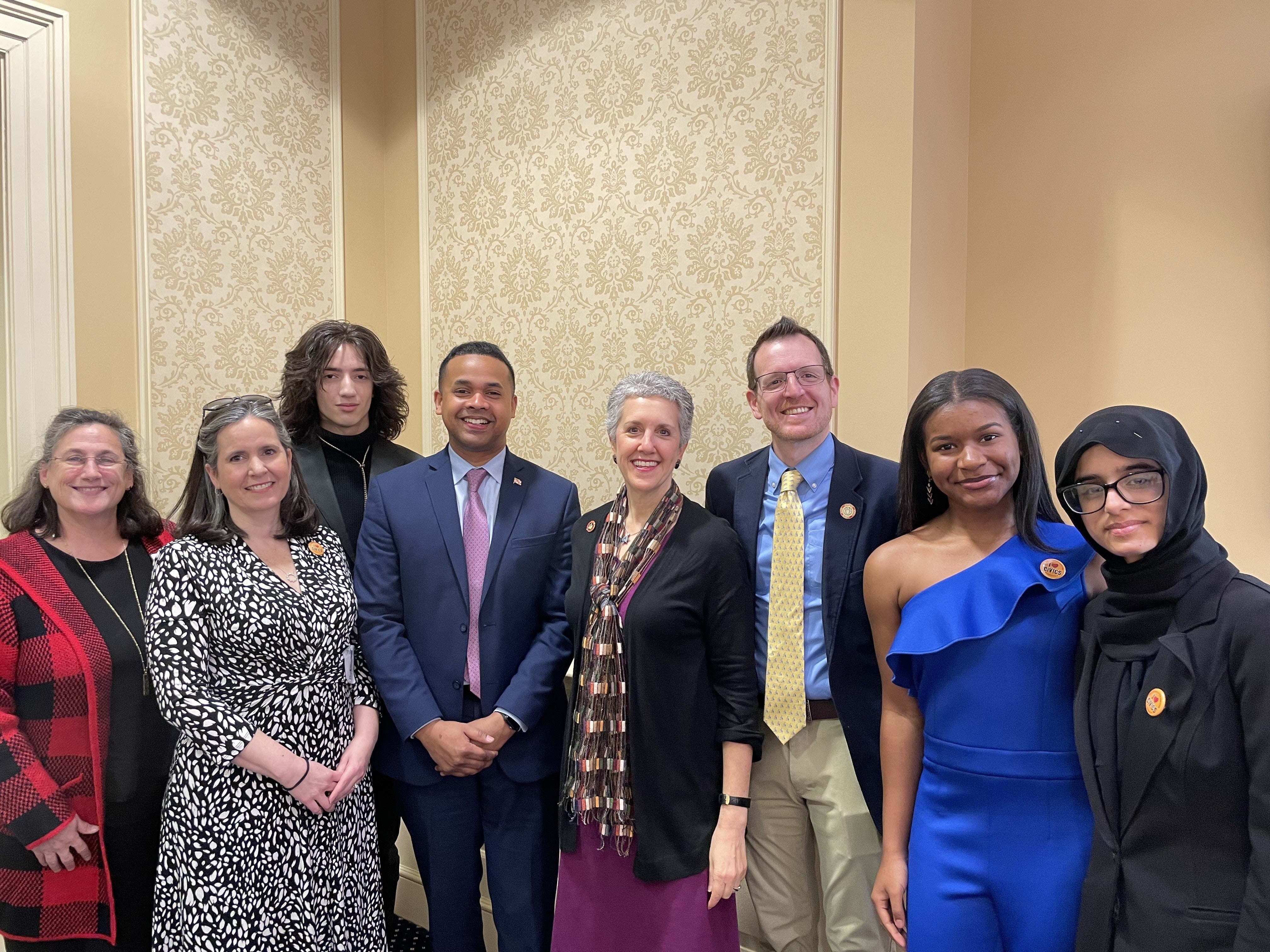
Lena Morreale Scott, MDI lead Principal Investigator and Co-chair of the Maryland Civic Education Coalition (MDCEC), joined MDCEC colleagues and youth advisory council members Meerub Malik, Alex Hossainkhail and Kinsley Potts, as well as Maryland Department of Service and Civic Innovation Secretary Paul Monteiro, to testify in the Maryland General Assembly on behalf of SB 762: Maryland Civic Excellence Program. SB 762 would establish a voluntary program where school systems can recognize students and public schools for their civic readiness and engagement efforts. Senator Cheryl Kegan (D-District 17) and Senator Justin Ready (R-District 5) have sponsored the bill in the MGA Senate with bipartisan support. With the 2024 MGA session ending on April 8, SB 762 has successfully advanced out of the Education, Energy and Environment (EEE) committee and out of the Senate and is currently under consideration in the House of Delegates.
By incentivizing and celebrating students who are exceptionally knowledgeable, prepared, and civically engaged and recognizing the public institutions that support them, SB 762 will strengthen meaningful, equitable, and high-quality civic education in Maryland public schools, a fundamental aspect of strengthening our shared democracy.
According to surveys conducted and test scores, Americans’ civic knowledge is low and many people lack essential civic skills such as dialogue, consensus-building, and information/media literacy. Additionally, polls continue to show us that Americans are losing confidence in their ability to make a difference in their democracy. We also know that students who participate in high-quality civics are equipped with the knowledge, skills, and experiences to participate more successfully and they have the agency necessary to believe their participation matters.
As the Moore Administration’s Department of Service and Civic Innovation moves into its second year, Scott believes that SB762 has the power to amplify many of the priorities associated with this new department. “Through the Maryland Civic Excellence Program, we can catalyze students’ positive experiences with service-learning to prepare and inspire young people to life-long service and civic engagement,” Scott said in her recent testimony to the MGA’s EEE committee.
With the passage of SB 762 and the creation of the Civic Excellence Program, Maryland can reverse an alarming trend that has marginalized the teaching of Social Studies to emphasize reading and math scores at the expense of other competencies, like civic competency. For example, federal spending per pupil spending on civic education is 50 cents compared to $50 on STEM education. The Maryland Civic Excellence Program would give educators the opportunity and incentive to rededicate attention to teaching for civic engagement while empowering each local school system to develop its own criteria for awarding students and schools with a Civic Excellence Seal.
The University of Maryland and its many partners in the Civic Education Coalition and the Maryland State Department of Education have opportunities to collaborate to support district leaders in developing their programs in ways that are measurable, impactful, and equitable and assist school leaders with resources to support teacher professional development and innovation.
“We would like to see future programs include opportunities for students to be celebrated for participating in civic-themed extra-curricular activities and elective courses from all content areas, not just Social Studies,” said Scott. “We are simply enthusiastic about what may be possible in the future. We stand ready to support the program’s success.”
Scott believes, “the Maryland Civic Excellence Program strengthens the civic mission of our schools and our democracy’s foundation. It supports building our shared democracy together with teaching and learning that celebrates and elevates life-long service and civic participation.”
Learn more about MDI’s Teaching and Learning pillar.
